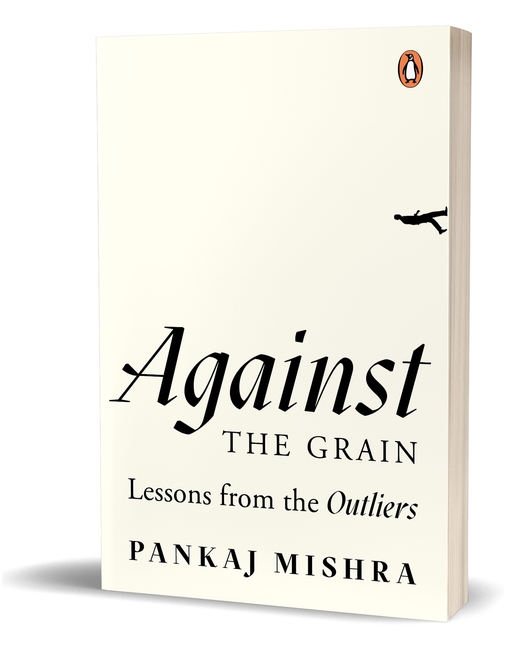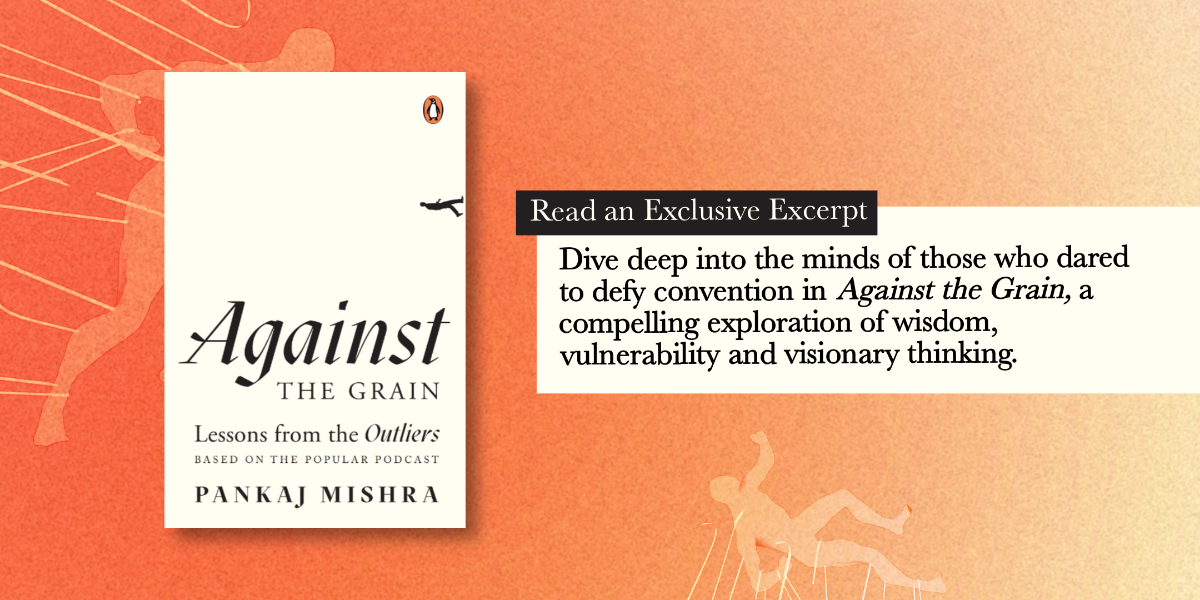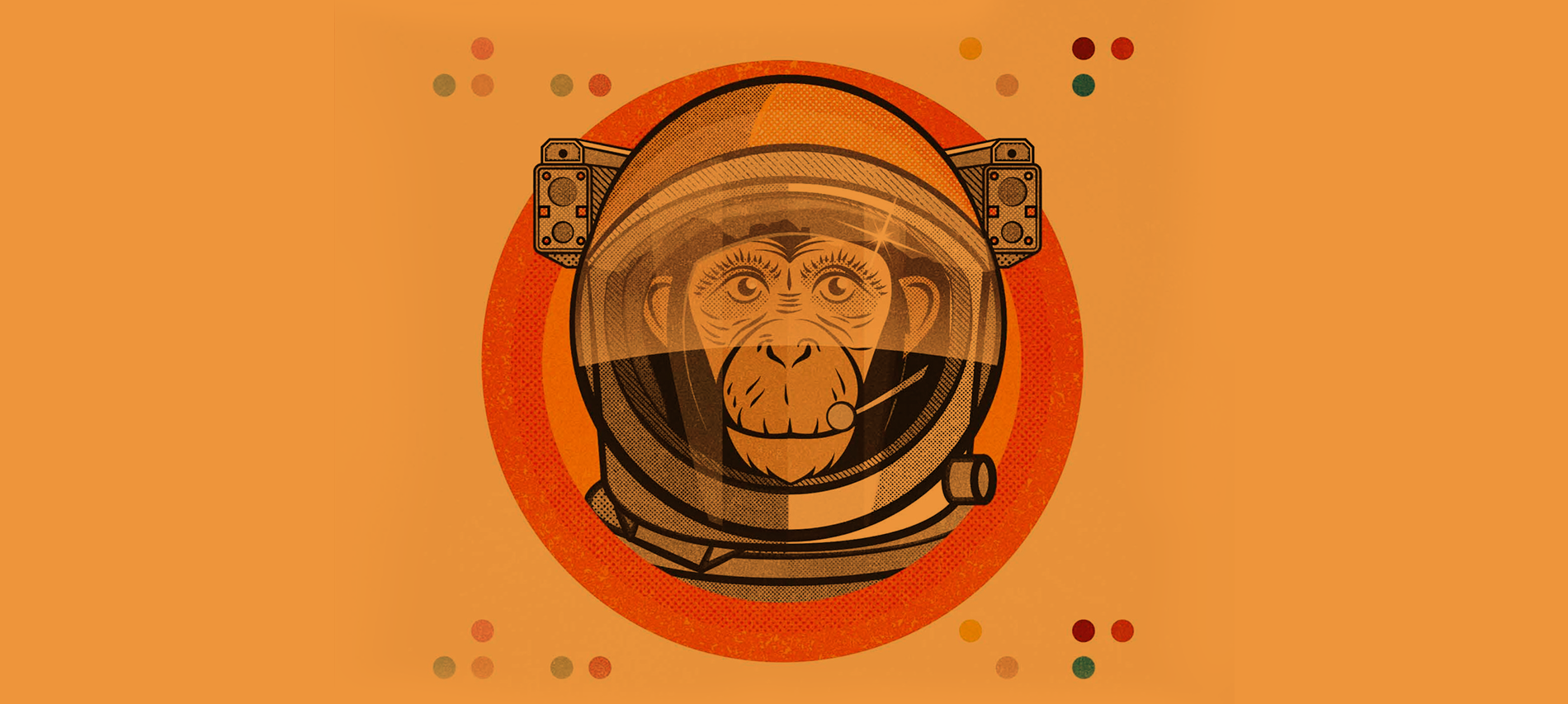Here’s your chance to defy the ordinary with Against the Grain by Pankaj Mishra, a book that celebrates those who dare to be different. Through engaging conversations with notable outliers like A.R. Rahman, Uday Kotak, and Wing Commander Rakesh Sharma, the book shares real stories of success, failure, and the pursuit of dreams.
Read this exclusive excerpt to discover how the Chandrayaan-2 mission turned setbacks into breakthroughs, capturing the true essence of resilience and innovation.

***
The concept of ‘successful failure’ resonates deeply in the story of India’s Chandrayaan-2 mission. It was a bold leap, aiming to explore the uncharted south pole of the moon. Despite the setback in the landing phase, the mission wasn’t a loss. The orbiter continues to gather valuable data, contributing significantly to our understanding of the moon. More importantly, with lessons learned from Chandrayaan-2’s challenges, Chandrayaan-3 could land successfully on the moon.
This journey transcends the bounds of space; it’s a metaphor for outliers—to find poetry in problems and to reach for the moon, quite literally, even when the first leap falters. And that’s what I love about these conversations. These outliers talk about their failures with the same pride they have for their wins. Because, let’s face it, owning your failures is a kind of success.
When you sit with someone like Wing Commander Rakesh Sharma, you can’t help but feel the gravity—no pun intended—of his experiences. Here’s a man who’s been to space, but what’s more fascinating is his down-to-earth wisdom on failure.
‘If you can be yourself and not feel that you have to measure up to some image somebody else has of you, that’s liberating; it frees up a lot of energy for you to do
other things.’ —Wing Commander Rakesh Sharma, the first Indian in space.
Rakesh’s words resonate deeply with me. The freedom to be yourself, to not be confined by others’ expectations, is liberating. It’s a lesson I’ve carried with me throughout my journey.
How has life’s unpredictability played a role in your journey, Rakesh?
Rakesh Sharma: ‘I must tell you that I am blessed and extremely lucky, because I got a chance to do everything in life. I was barely twenty-two, and the air force decided to run an experiment. We had just got the MiG-21 supersonic aircraft—they wanted to catch young guys, and I got a chance. I joined the air force young, and before my twenty-third birthday, I had flown twenty-one operational missions in the 1971 war. Then, I got selected for the test pilot course, and despite not being all good in academics, I managed to become a test pilot. A fighter pilot and a test pilot—fit and young—and I then got a chance to go to space. Things have happened to me.’
Rakesh, how do you view failures in your life?
‘As far as failures are concerned, it depends on how you are looking at them. For example, most people think that when they set the bar for themselves and do not achieve it, that is a failure. But when you have constantly striven to get what you set [out to achieve] for yourself, and even then if you fall short, you will, in the process, improve yourself, right?’
Indeed, striving itself is a form of success. This is a perspective I’ve often found comforting.
‘So, I made mistakes during combat, and that’s part of the learning—I wouldn’t really put that down as a failure. That is just a learning experience. As a test pilot, I have had the chance to eject from an airplane because the engine backed up, and I would call it learning, not a failure. The important thing you need to ask yourself is: How do you remain invested? Do you have the passion for the job you are doing?’
Passion is a recurring theme in our conversations. Rakesh, how did you deal with the daunting tasks in your career?
‘In my case, whenever I looked at a daunting, challenging task, my first reaction was, “Hey, I will not be able to do this.” At each stage during my flying career,
when I went from slow to medium to faster to supersonic aircraft, at each stage, I felt, “Oh my god, this is too fast. There is no way I can hack it.” But when you actually get into it, you find that things are not half as difficult as you imagined them to be!’
You know, this idea of passion being the driving force, it’s something that has come up time and again in the conversations I’ve had. But hearing it from a guy who has been to space and back just hits differently. It’s like all those talks I’ve had over the years suddenly get this extra layer of, well, gravity. Rakesh, you echo something we all know deep down but sometimes need a nudge to feel. It’s fascinating how we often overestimate challenges.
‘So, when opportunities come your way, don’t get intimidated. Of course, be prepared that you might not hack it, but no need to get intimidated. Either it will
happen or it will not happen. After all, when I went for the selection as a kid, there was no pilot aptitude test. Now, there’s a pilot aptitude test, and if you fail it once, you will never become a pilot in the Indian Air Force, so there is tremendous pressure on you. If you have it, you have it; if you don’t have it, you approach it like that—you can’t prepare for something like that!
Indeed, some aspects of life and career are beyond meticulous preparation.
‘Similarly, when you are doing test flying, the best you can do is your best. You can read up all there is to read. You can de-risk, but you signed up for it. You are honourbound to go and do it. Even if you are scared, you go and do it as best you can. If it doesn’t work out, it doesn’t work out—that’s part of the landscape you have chosen to be in.’
Choosing our landscape, our path, comes with its own set of challenges and rewards.
‘So, this is one life lesson we really need: never back off! Failure is not the end of the world. Pressure is something that we bring upon ourselves. We should give it a bash. Just be yourself!’
So there you have it—wisdom from a man who has seen the earth from a point most of us can only dream of reaching. But what strikes me most is how grounded his insights are. ‘Just be yourself,’ he says.
Simple, yet profoundly liberating.
***
Get your copy of Against the Grain by Pankaj Mishra on Amazon wherever books are sold.









